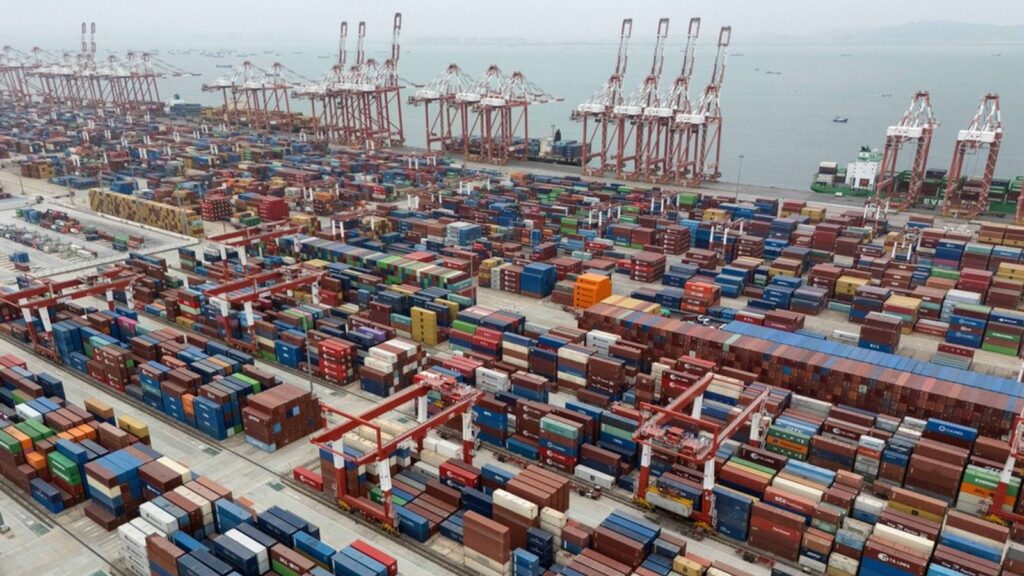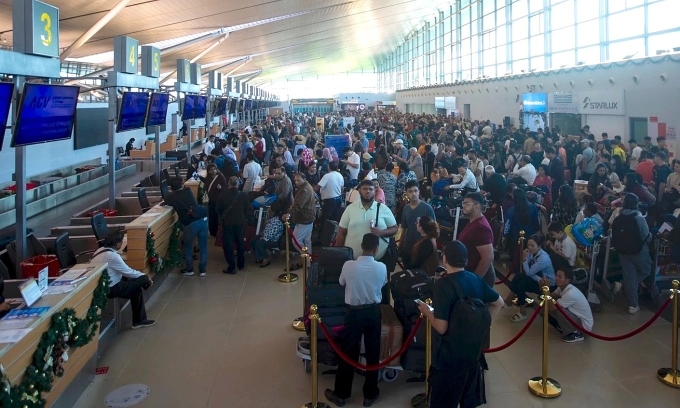
Shipping containers are stacked and ready for transport at the bustling Guangzhou Port in southern China’s Guangdong province. This scene, captured on April 17, 2025, underscores the global interconnectedness that is now under threat following a sweeping executive order by US President Donald Trump. Issued on Thursday evening, the order imposes tariffs on nearly every trading partner of the United States, marking a significant shift in international trade dynamics.
The executive order is seen as a pivotal moment in the ongoing deterioration of both American and global capitalism. By erecting a tariff wall reminiscent of those during the Great Depression of the 1930s, the US risks repeating history’s economic and political mistakes. The 1930s tariffs contributed to the conditions that led to World War II, and experts warn that Trump’s economic policies could have similarly grave consequences.
Historical Parallels and Modern Complexities
Unlike the 1930s, today’s global economy is intricately woven, with supply chains spanning continents. No single commodity is produced entirely within one nation; instead, production processes are globally distributed. This interconnectedness highlights a fundamental contradiction in the capitalist world order: the tension between a global economy and the division into competing national states.
Trump’s tariffs threaten to dismantle the post-war trading system established to prevent military conflicts through economic cooperation. As one administration official stated, “This is a new system of trade,” signaling a departure from decades of international economic policy aimed at reducing trade barriers.
“The post-war trading order was based on the lowering of tariff measures and the removal of restrictions… aimed at promoting economic growth and preventing military conflict.” – Historical Analysis
Implications for Global Powers
The introduction of these tariffs is not merely a reflection of Trump’s personal ideology but rather an expression of a deeper existential crisis within US imperialism. The United States, once the world’s industrial powerhouse, has evolved into a financial center marked by instability, as seen in past financial crises.
Trump’s executive order emphasizes the need for foreign trading partners to align with US economic and national security interests. This requirement is particularly evident in the administration’s stance towards China and other emerging powers. For instance, India faces criticism for its trade relations with Russia, while Brazil is penalized with a 50% tariff, despite being a trade surplus partner, due to its association with the BRICS group.
“Losing dollar supremacy… would be the equivalent to losing a war.” – President Donald Trump
The Global Response and Future Outlook
The European Union’s response to the tariffs exemplifies the global tension. Under threat of exclusion from American markets, the EU capitulated to Trump’s demands, a move criticized by leaders like French Prime Minister Francois Bayrou as a resignation to submission. This capitulation reflects the broader challenge facing global powers, who must navigate the aggressive economic policies of the US while maintaining their sovereignty.
Japan and other US rivals are similarly targeted, with the seeds of a new inter-imperialist conflict beginning to germinate. The historical context of past conflicts, such as Germany and Japan’s wars against the US, serves as a stark reminder of the potential for future hostilities.
“The seeds of a new inter-imperialist war have not only been planted, they are starting to germinate.” – Geopolitical Analyst
A Call for International Solidarity
In contrast to the 1930s, today’s working class is not demoralized but increasingly moving towards leftist and anti-capitalist sentiments. This shift presents an opportunity for a unified international response to the challenges posed by Trump’s policies. The crisis is not solely a result of Trump’s actions but a manifestation of the broader failures of the capitalist system.
The path forward lies in fostering an internationalist perspective that unites the working class across borders. The call for a socialist program, as advocated by the International Committee of the Fourth International, emphasizes the need for a collective struggle against nationalist agendas.
“The main enemy is at home.” – International Committee of the Fourth International
As the world navigates this new era of economic tension, the focus must remain on building leadership and solidarity to address the underlying issues of the capitalist order. The stakes are high, and the future of global economic stability hangs in the balance.







